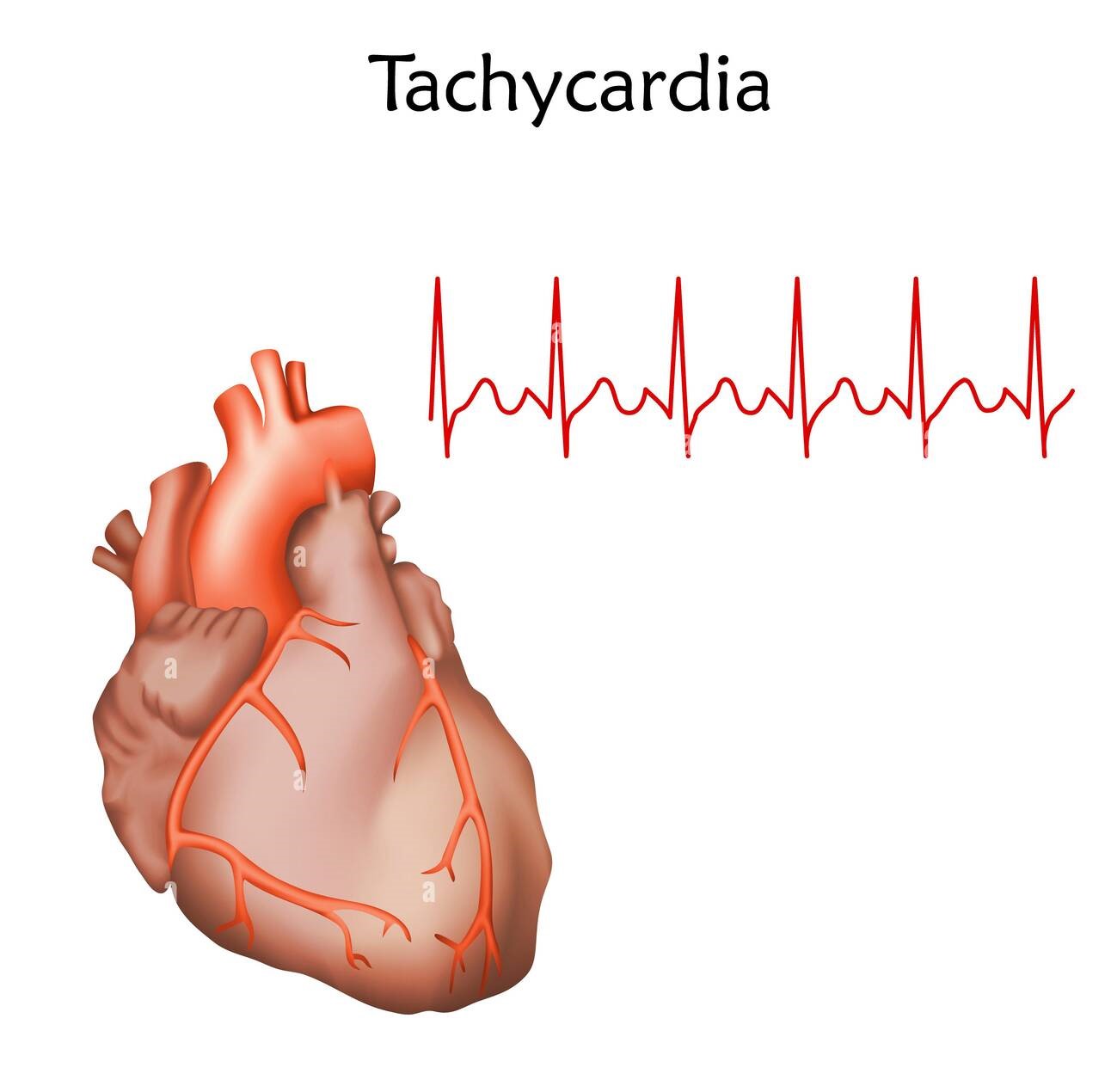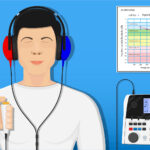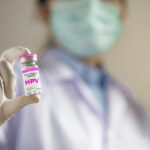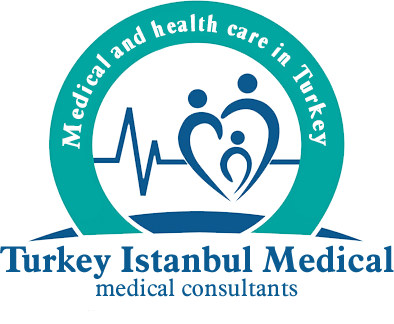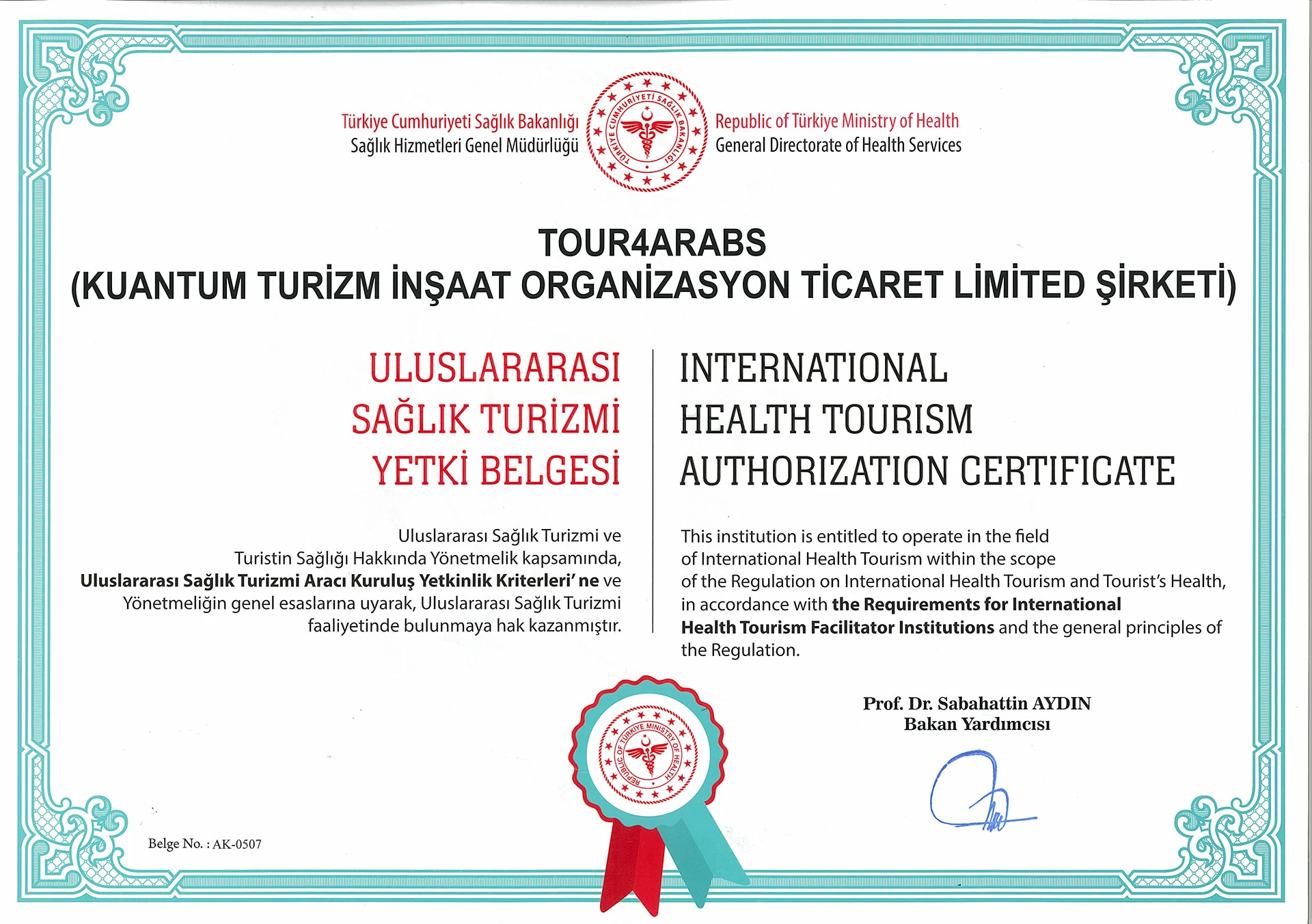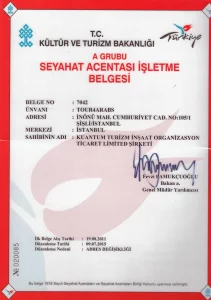What is Heart Palpitation (Tachycardia)?
These are situations where the heartbeat becomes irregular or accelerates in a way that makes the person uncomfortable.
For adults, a heart rate above 100 beats per minute when the body is at rest and without any effort is called Heart Palpitation (Tachycardia).
A normal heart beats 60 to 100 times per minute, while in tachycardia this figure reaches 140 and more.
What are the Causes of Heart Palpitation (Tachycardia)?
Heart palpitations are usually caused by a disruption in the normal electrical impulses that control the pumping action of the heart.
Some conditions and diseases are among possible causes of tachycardia.
These:
- Caffeinated drinks
- Excessive exercise
- Reaction to certain drugs
- Alcohol consumption
- Use of cocaine and some other drugs
- Heart valve disease
- Coronary artery disease
- Heart valve disease
- Heart failure
- Electrolyte imbalance
- Hypertension
- Infections in the heart
- Overwork of the thyroid gland
What are the Symptoms of Heart Palpitation (Tachycardia) ?
Some symptoms of tachycardia are;
- Dizziness
- Shortness Of Breath
- Chest Pain
- Sudden Weakness
- Feeling of Dizziness
- Low Blood Pressure
Heart palpitations are the most common tachycardia symptoms. In extreme cases, you may become unconscious and have a heart attack. Some tachycardia attacks may occur without any symptoms.
What are the Complications of Heart Palpitation (Tachycardia)?
Complications of tachycardia;
- Type of tachycardia,
- How fast the heart beats in a tachycardia state,
- How long it takes,
- It depends on how long the tachycardia has been present and whether there are other accompanying cardiac problems.
Some common complications are as follows:
- Fainting and unconsciousness
- Heart failure
- Sudden cardiac death especially caused by ventricular tachycardia and ventricular fibrillation
What are the Types of Heart Palpitation (Tachycardia)?
There are different types of heart palpitations. The types of tachycardia vary from heart rate to which part of the heart it is seen.
-
Atrial Fibrillation:
It is the most common type of heart palpitation. It occurs due to irregular electrical impulses coming between the small chambers called atria in the upper area of the heart. These irregular signals cause the atria to contract weakly or rapidly. Excessive alcohol, hyperthyroidism, hypertension and heart valve disorders are among the triggering diseases.
-
Atrial Flutter:
Heart valves beating too fast in an irregular way. Because of the speed, the auricles weaken and flutter.
-
Supraventricular Tachycardia (STV):
It is a very rapid beating of the lower chambers of the heart.
It is most common in those who smoke and drink heavily.
-
Ventricular Tachycardia:
A very rapid heartbeat with unusual electrical signals in the lower chambers of the heart.
This speed may not allow the ventricles to pump enough blood.
Short attacks may be harmless. However, attacks that last longer than a few seconds can become an emergency.
-
Ventricular Fibrillation:
They are irregular, rapid and electrical impulses. This causes the lower chambers of the heart to vibrate instead of pumping blood throughout the body.
If the heart is not intervened with electric shock, it can cause death. It can be seen during or after a heart attack. It can develop as a result of an underlying heart condition or lightning strike.
How Is Heart Palpitation (Tachycardia) Diagnosed?
For the diagnosis of heart palpitations, first of all, a detailed medical history of the patient is taken. And a physical examination is done.
- EKG (Electrocardiogram) is the first method used for palpitations.
- It is done to observe the electrical data of the heart with EKG.
- In some patients, a 24-hour ECG Holter test is performed to monitor the heartbeat for 24 hours.
- This device is a small portable recorder. The patient records the heart rhythm by connecting the device to himself for 24 hours.
- With electrocardiography (heart ultrasound) imaging, it gives detailed information about whether there is any structural disorder in the heart, the dimensions of the heart chambers and the condition of the heart valves.
- In this way, factors that cause rhythm disturbances may occur.
- Routine blood tests are also done to rule out causes of palpitations other than the heart.
Some of these tests are;
- Thyroid function tests,
- Kidney function tests
- Hemogram
How Is Heart Palpitation (Tachycardia) Treated?
In the treatment, the factor causing the disorder should be identified and eliminated first. Treatment options vary depending on the cause of palpitation, the patient’s age, and general health.
Some of the methods used in the treatment are:
-
Vagal Maneuver:
It is a treatment method that doctors apply without using drugs by directing patients. When the heart beats at a high rate, it demands compelling movements. Vagal maneuvers include coughing, straining, and placing an ice pack on the person’s face.
-
Anti-Arrhythmic Drug Therapy:
If there is no change in heart rhythm after performing vagal maneuvers, drug therapy should be initiated. Antiarrhythmic drugs can be administered orally or by injection. It helps to restore a normal heartbeat.
-
Cardioversion (Electroshock):
It is the last method preferred in the treatment of tachycardia. In this procedure, an electrical shock is applied to the heart through spoons or tapes attached to the chest.
-
Defibrillation:
It is used in the emergency treatment of life-threatening arrhythmias where the pulse cannot be taken in the patient.
What Is Good For Heart Palpitation (Tachycardia)?
Before the heart palpitations become too serious, relief can be achieved with some self-administered measures.
Some of these can be listed as follows:
Relaxation Techniques
- Yoga
- Meditation
- To do sport
- Breathing exercises
- Go on holiday
Reducing Stimulant Intake
- Caffeinated Beverages such as Coffee, Tea and Coke
- Tobacco Products
- Illegal Drugs
- High Blood Pressure Medicines
- Alcohol Use
Maneuvers that Stimulate the Vagus Nerve
- Straining
- Coughing
- Belching
- Face wash with cold water
- Taking a cold shower
